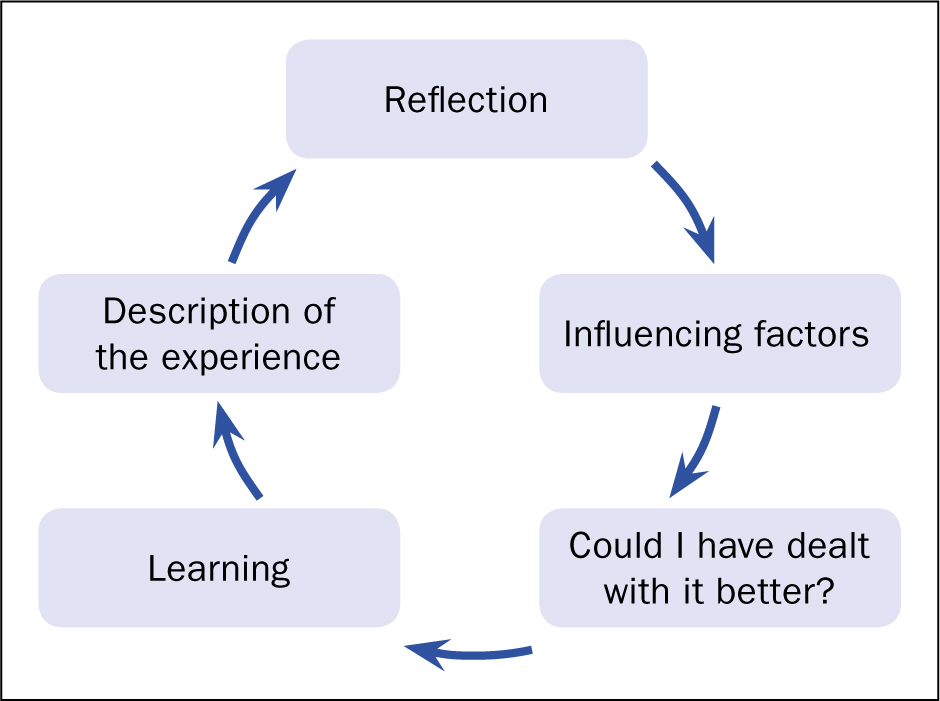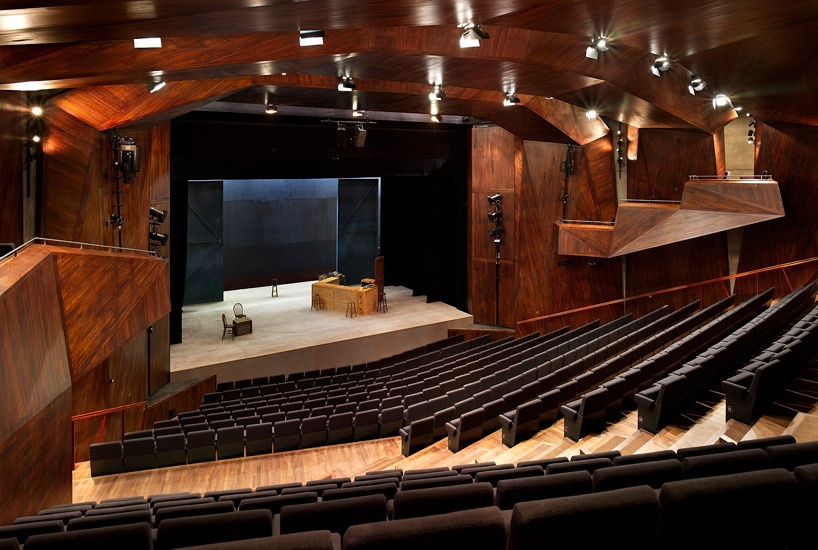Work placement is a challenging experience – making the tea is harder than it sounds!
Harder still is maintaining motivation and momentum when things aren’t going the way you planned. One of the most valuable lessons I learned from work placement is often things don’t pan out exactly how we imagine they’re going to. In these situations, it is our attitude and how we respond that dictates how much we benefit. In this, my second blog post, I will use the ‘Johns Model of Reflection’ to dissect and assess my own response.

Phase 1 – Describe the Experience!
The second of my two work placements was with the ‘Belfast Ensemble’, a prestigious theatre company local to Belfast. Some weeks earlier I had spent an introductory day with the ensemble at the Grand Opera House in the city centre. This had been a very enjoyable experience, and I’d spent the day shadowing the company’s audio technician as he worked on a production with Mark Almond (of ‘Soft Cell’ fame). I was now booked in for a full working week at the Lyric Theatre with the ensemble as they prepared to debut a new opera, “The Headless Soldier”, written and directed by Conor Mitchell.
Although I have played many a convincing tree and the occasional nonplussed sheep in school nativities, I’m not particularly well travelled in the world of theatre and said world of theatre can be daunting to the uninitiated; terminology, etiquette and technical know-how are the order of the day. How naive I was, thinking I’d fly under the radar, not knowing upstage from down, and quietly shadow the company’s audio technician.
“After a full week of sound tech experience, I’ll be pretty clued up!”, I had thought to myself.
Almost on arrival I learned this was not to be; brief reintroductions and I was set to work with the lighting technician, Mary, who showed me how to rig bars with stage lights. At this stage (get it? Stage?) I had an inkling that my week was unlikely to be purely audio related – I shared this hunch with Mary, who chuckled and reliably informed me that it would, as is often par for the course, be all hands to the pump.
The rest of the week was spent frantically odd jobbing; I spent time rigging projectors, setting up orchestra pits and lifting heavy things, the hustle and bustle culminating in three performances of the opera. I was asked to be a stagehand for these performances, and so it was that I found myself in blacks, hiding in the wings and watching the opera each night.
The crux of the matter is I didn’t spend any time doing what I had originally wanted to do.
Phase 2 – Reflect on the Experience
Initially this involuntary change of pace left me feeling more than slightly dispirited. I thought that, as I was not gaining any experience of the audio technician role, I was wasting a week; audio was the only element of this environment that I had any experience in, so most tasks pushed me far out of my comfort zone and necessitated the asking of a lot of questions, many daft.
Struggling with the feeling that I stuck out like a sore thumb, I was comforted somewhat by a quote from ‘Beginning Reflective Practice’ by Melanie Jasper [1] which says, “It is normal to experience ‘reality shock’, anxiety and insecurity when entering new environments”. ‘Reality shock’ seemed a fitting term for what I was experiencing, but looking around I noticed that everyone was pitching in, regardless of their professional role.
A prime example of this occurred just before the first performance, when we encountered a problem with stage transitions. The writer and director, Conor Mitchell, had only recently finished the opera (the last of the score having been written a matter of hours before the orchestra were due to rehearse it), and so there were creases to be ironed out.
The dramatic and violent first act left the stage in a total mess – Lego, pills and fake blood smeared across a linoleum floor, a dining room table and chairs plastered in bolognaise and wine. Everything had to be cleared from the stage quickly and carefully, including the very heavy furniture, for the beginning of the second act. We set to work choreographing the stage reset and, to my surprise, even Conor was drafted in as a stagehand.
Enthused by the team spirit on display, I even felt confident enough to pipe up with some suggestions of my own. In the end an interval was added in to allow for the stage to be properly cleaned, however seeing how everyone had come together to try and solve a problem had made me feel more comfortable with being spread across different roles and tasks.

Phase 3 – What Influenced Me?
Had I asked, I likely would have been allowed to shadow the audio technician for the entire week. There were a few times I considered making this request, out of concern that I was allowing a learning opportunity to pass me by, but I refrained, largely due to my own social awkwardness; my fear of being perceived as a hinderance, or coming across as difficult or pushy and being shunned as a result, probably prevented me from gaining the experience that was most relevant to my course. I was also conscious of the fact that I was in quite a privileged position, having been allowed to spend the week there in the first place, and decided I didn’t want to push my luck. Having discussed with a few friends on different work placements, this feeling of “owing” something to the placement provider seems to be a common theme; I don’t think it necessarily benefits the student.
Phase 4 – What Could I Have Done Better?
By the end of the week, I was feeling more comfortable and confident working with and around the Ensemble, and probably would have asked for the chance to shadow some audio work; however, by this time, performances had begun, and I was heavily involved as a stagehand – I even had to cue one of the younger actors (although he definitely didn’t need my help). At this point I was happy to feel like part of a team, however, if I had the opportunity again, I would try to swallow my nerves and mention at the outset that I had a very active interest in audio and would love to be involved in that side of the production where possible. As is often the case, don’t ask don’t get. In her book ‘Placements: A Survival Guide For Students’ [2], Christine Fanthome states that, for a quality work placement, “objectives and learning outcomes should be agreed and defined prior to the student beginning the placement”. This wasn’t something I considered at the time but is a technique I will certainly employ from now on; by discussing my interests and what I aimed to gain from the placement with my employer in advance, I would have finished the week with a lot more audio engineering experience.
Phase 5 – What Did I Learn?
Although I didn’t spend the time as I had originally intended, I don’t feel as though a moment was wasted. I have come away from the week with the strong belief that, in the creative industry, versatility is invaluable.
Theatre is a great source of employment for audio engineers, and so competition for jobs can be quite fierce. By spending a week helping with various aspects of the ‘Headless Soldier’ production, I feel I’ve gained a good amount of experience across the board. The day-to-day reality of the industry is that understanding how to rig a lightbar, or mount a projector, or knowing upstage from down, can be the difference between securing a job and being pipped to the post.
I was told ad infinitum that ‘it’s not what you know, it’s who you know’, and this also has a backbone of truth. In that week alone I made several very useful connections with audio engineering professionals responsible for the tech teams at both the Lyric Theatre and Mandela Hall, a large local venue which plays host to major bands and events. We exchanged contact details, and I realised that often a foot in the door can land you the job you’re after. In many professional environments, enthusiasm and willingness to get stuck in, regardless of the task, leaves a lasting impression.
All professional aspirations aside, the week left me with a newfound appreciation for theatre, particularly opera, and the performers involved. As a keen musician myself, watching true professionals ply their trade was fascinating.
And so, it seems the case that if you learned something, nothing is a waste of time.
References
[1] Jasper, M. (2013). Beginning Reflective Practice.
[2] Fanthome, C. (2004). Work Placements – A Survival Guide for Students. https://doi.org/10.1007/978-1-137-08191-9_1